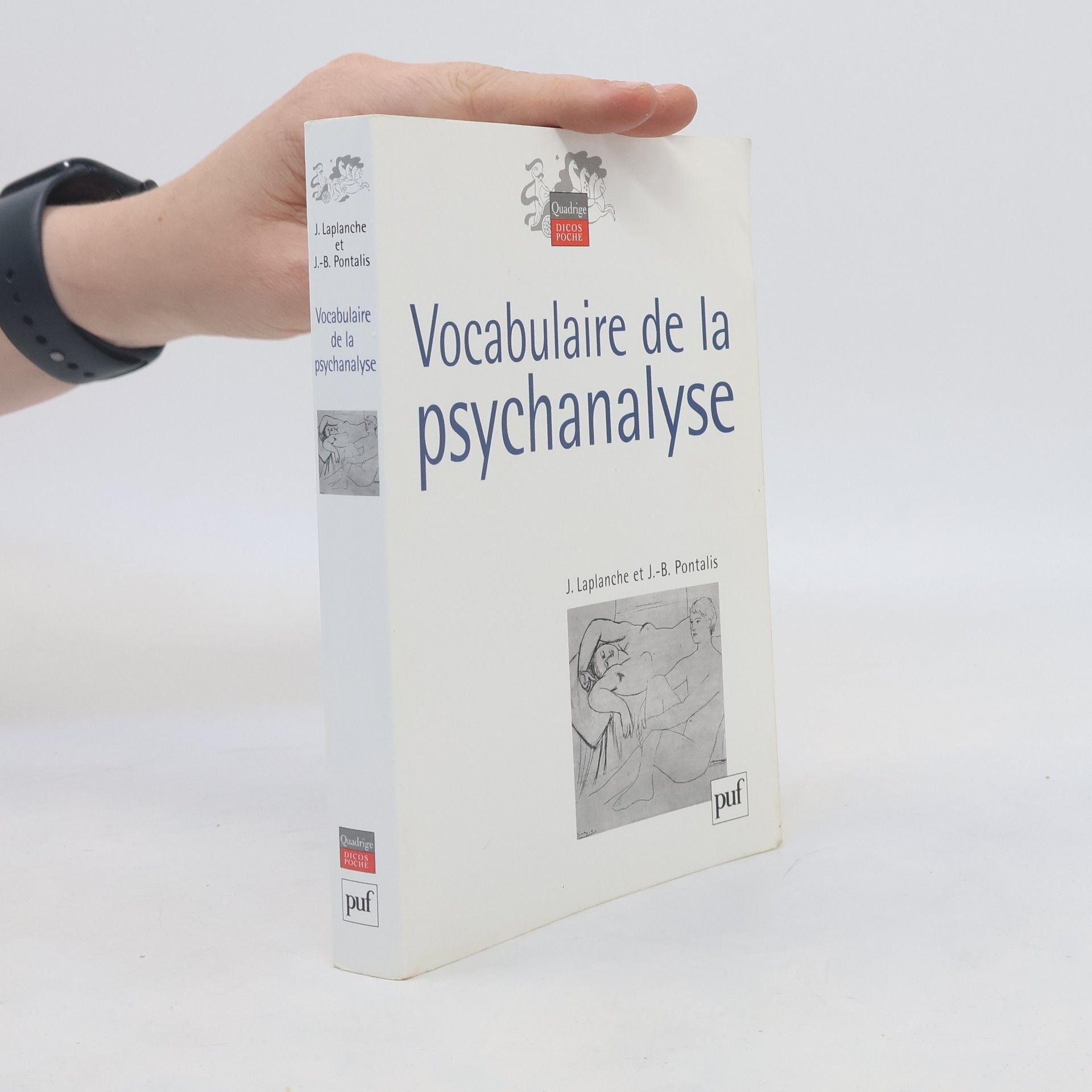Zu behaupten, dass der Mensch ursprünglich um den anderen »kreist« und dass er sich von Kindheit an von einer radikalen Andersheit ausbildet, ist eine Revolution, die es fortzusetzen gilt – von Freud aus und über ihn hinaus. Die in diesem Band enthaltenen Texte von Jean Laplanche aus den Jahren 1967 bis 1992 zeigen, dass der Gegensatz zwischen einer »kopernikanischen« Tendenz, die den Menschen sich selbst gegenüber dezentriert, und einer »ptolemäischen« Tendenz, die ihn unaufhörlich auf sein Ich rezentriert, in der Psychoanalyse und auch im Denken Freuds gegenwärtig bleibt.
Jean Laplanche Ordre des livres
Jean Laplanche fut un psychanalyste français dont l'œuvre fut profondément nourrie par l'interrogation philosophique. Ses premières études auprès de penseurs éminents ont façonné sa compréhension profonde de l'esprit humain. Il poursuivit ensuite sa formation et sa cure analytique auprès de Jacques Lacan, affinant davantage son approche théorique. Les contributions de Laplanche l'ont établi comme une figure marquante, faisant le pont entre la pensée philosophique et la pratique psychanalytique.






- 2023
- 2022
Die Vorlesungsreihe »L après-coup« von Laplanche bietet eine tiefgehende Analyse des Freud'schen Begriffs der Nachträglichkeit und beleuchtet dessen Bedeutung in der Psychoanalyse. Durch die Eröffnung eines Raums für unterschiedliche Interpretationen präsentiert Laplanche schließlich eine eigene Lesart. Dieser Band stellt die Vorlesungen erstmals in deutscher Sprache zur Verfügung und ermöglicht somit einen neuen Zugang zu einem zentralen Thema der psychoanalytischen Theorie.
- 2021
Ein biologistischer Irrweg in Freuds Sexualtheorie
- 135pages
- 5 heures de lecture
In seiner Abschlussvorlesung zur Reihe »Problématiques« untersucht Jean Laplanche den Ursprung der infantilen Sexualität und präsentiert eine neuartige Theorie. Anders als Freud, der die Sexualität aus Selbsterhaltungsinstinkten ableitet, betont Laplanche die Rolle des erwachsenen »Anderen«. Dieser vermittelt durch rätselhafte Botschaften, die die Entwicklung der Sexualität bei Kindern anstoßen. Laplanche bietet somit eine frische Perspektive auf die Entstehung der Sexualität und deren komplexe Wechselwirkungen zwischen Kind und Erwachsenem.
- 2019
The Language of Psychoanalysis
- 528pages
- 19 heures de lecture
The book offers a comprehensive dictionary of Freud's concepts, presenting an authentic account of their evolution rather than just definitions. Through extensive research, the authors include relevant excerpts from Freud's writings, enriching the understanding of each concept's context and development. This approach provides readers with deeper insights into Freud's theories and their significance in psychology.
- 2017
Après-coup
followed by Time and the Other and Temporality and Translation & Debate on "Temporality and Translation"
- 300pages
- 11 heures de lecture
The lectures from the 1989-90 seminar on après-coup showcase Laplanche's significant contributions to psychoanalysis during a peak of his creative output. This volume completes the English translations of his major works, alongside two additional essays, "Time and the Other" and "Temporality and Translation," also translated by Luke Thurston. These texts delve into complex themes of temporality and the interplay of translation within psychoanalytic theory, enriching the understanding of Laplanche's innovative ideas.
- 2016
Focusing on the intellectual evolution of Jean Laplanche, this work highlights a pivotal five-year period beginning in 1987, marked by his seminal text New Foundations for Psychoanalysis. During this time, he developed key concepts through various seminars, including the exploration of après-coup and critiques of Freud's biological interpretations of sexuality. The text encapsulates Laplanche's innovative contributions to psychoanalytic theory, showcasing his profound impact on the field and the ongoing dialogue surrounding Freud's legacy.
- 2016
New Foundations for Psychoanalysis
- 214pages
- 8 heures de lecture
The book highlights a pivotal five-year period in Laplanche's intellectual journey, beginning with the release of New Foundations for Psychoanalysis in 1987. During this time, he developed key concepts that shaped his theories, alongside significant seminars that explored intricate topics such as après-coup and Freud's theories on sexuality. These works, including Problématiques VI and VII, showcase Laplanche's critical engagement with psychoanalytic thought and his innovative contributions to understanding human sexuality and its biological implications.
- 2015
For this volume Jean Laplanche selected his principal writings from 1992 to 1998, a period in which he demonstrated the power and range of his psychoanalytic and philosophical inquiry, including his 'return to Freud' and his General Theory of Seduction. Some of the essays are here published in English translation for the first time. Forty years after his masterful translation of Laplanche's Life and Death in Psychoanalysis, Jeffrey Mehlman once again provides an elegant and insightful translation, which preserves the clarity and rigor of Laplanche's essays.
- 2014
Focusing on the intersection of biology and sexuality, this major monograph delves into Freud's theories and critiques the biologizing tendencies in understanding human sexuality. Laplanche examines the implications of these ideas for psychoanalysis and offers a nuanced perspective on sexual development and identity. Originally published in 1987 and later republished, the work reflects significant developments in Laplanche's thought, making it a pivotal text for those interested in psychoanalytic theory and sexual discourse.
- 2011
Freud and the Sexual
- 352pages
- 13 heures de lecture
Challenging conventional interpretations, this work by Jean Laplanche delves into the complexities of Freud's theories on sexuality. Laplanche contends that Freud's ideas have been oversimplified, revealing a richer and more nuanced understanding of sexuality than typically acknowledged. Through this exploration, the author seeks to clarify and expand upon Freud's original concepts, offering fresh insights into psychoanalytic theory and its implications for understanding human sexuality.